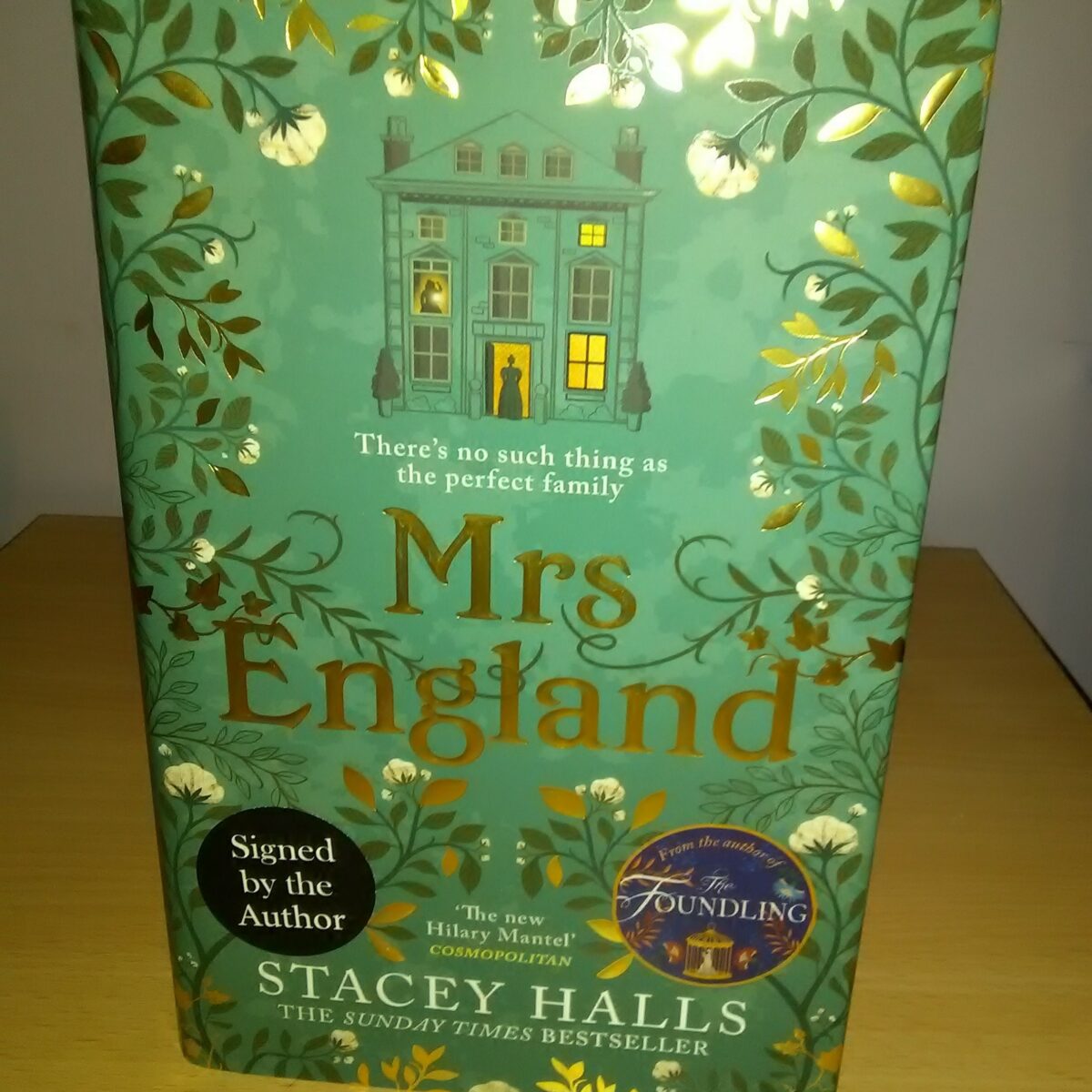reviewed by Andrew Godsell.
As a relaxed reader, it often takes me several weeks to read a book. Occasionally however, I am gripped; such was the case with Mrs England. The 424 pages were consumed in just nine days! It is one of the most atmospheric, and amazing, novels I can recall reading.
Stacey Halls debuted with The Familiars in 2019, followed by The Foundling in 2020, and Mrs England arrived in 2021. Will she be able to sustain the pace of a book a year? I hope so, and presumably so do her many other readers of this increasingly celebrated historical fiction.
The Familiars is a tale of witchcraft set in 1612. It was impressive but took me seven weeks to read. I bought The Foundling at the same time, and as yet have not read it, preferring to jump to the new novel. Since acquiring Mrs England, I have felt an emotional connection to the book as an object. It is a beautifully produced hardback, moreover it is a signed copy. The clever design on the dust jacket, of a house surrounded by foliage, features gold embossing when it catches the light, radiates a gentle glow on to the green edging of the pages.
The story is written in the first person, from the viewpoint of Ruby May; a strong and independent young woman who works as a children’s nurse. It begins in the Summer of 1904, with Ruby looking after a young girl, whose parents enjoy a prosperous life in Edwardian London.
The scene then shifts to another assignment, with Ruby moving to rural Yorkshire to nurse the four children of the eponymous Mrs England. She appears as a weak and withdrawn lady, having delegated decisions about family life to her husband, the manager of a cotton mill. As Autumn progresses and days grow shorter and colder, the unsettling family atmosphere darkens, with strange events taking place in the woods and villages that neighbour the England family residence.
Halls is very good at drawing characters, with Ruby aware of herself and others around her, although first impressions are sometimes misguided. Mrs England’s birth family are named Greatrex and are all unappealing, and rather homogenous. Perhaps this is an intentional contrast with an otherwise diverse cast, each of whom play an individual role in an intriguing book.
I wonder if the setting of the novel in the year 1904 is significant, as the Suffragettes’ struggle to win the vote for women was becoming militant at this time. There is no overt politics in the book, but Halls appears to be putting forward a feminist case for the strength of women.
I will not say much more about the story. I feel that the blurb tells too much of the plot – if you don’t want to know the result, or at least what happens before half time, avoid reading the front inner flap of the jacket! Actually, I find that the covers of many novels tell more than I want to know, ahead of reading it for myself. I thought one incident in the book was probably impossible until reading a note from the author, following the text, that explained it conveyed something that actually happened.
Halls has dedicated the novel to the people who work in our NHS, with thanks for their efforts. I find this particularly touching, as one of the more than a million NHS staff, albeit in a quiet administrative role, as opposed to the front line heroes who are literally saving lives during the Covid pandemic at personal risk, and will continue to do so.
Published by Manilla Press and available now in all good bookshops.
Could you help to support In Common, for as little as £1 a month? Please help make us sustainable with a monthly donation. Visit: https://www.patreon.com/incommonsoton

